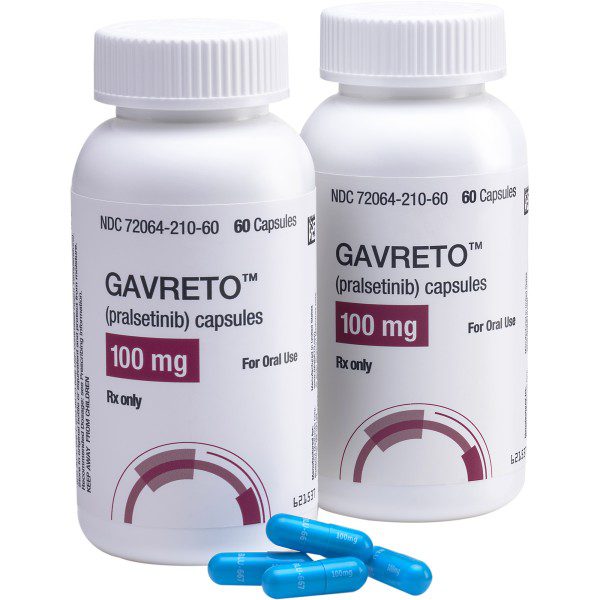August 2023: Pralsetinib (Gavreto, Genentech, Inc.) was given regular approval by the Food and Drug Administration for adult patients with metastatic RET fusion-positive non-small cell lung cancer (NSCLC), as determined by an FDA-approved test.
Based on the initial overall response rate (ORR) and durability of response (DOR) in 114 patients participating in the ARROW study (NCT03037385), a multicenter, open-label, multi-cohort trial, pralsetinib was previously given expedited approval for the NSCLC indication on Sept. 4, 2020. Based on information from 123 more patients and an additional 25 months of follow-up to gauge the longevity of the response, the conversion to regular approval was made.
A total of 237 patients with locally progressed or metastatic RET fusion-positive NSCLC showed efficacy. Patients were given pralsetinib until the disease progressed or the side effects were intolerable.
A Blinded Independent Review Committee (BIRC) decided that ORR and DOR were the key efficacy measures. The ORR was 78% (95% CI: 68, 85) among 107 patients who had never received therapy, and the median DOR was 13.4 months (95% CI: 9.4, 23.1). The ORR was 63% (95% CI: 54, 71) among 130 patients who had previously had platinum-based chemotherapy, and the median DOR was 38.8 months (95% CI: 14.8, not estimable).
Musculoskeletal discomfort, constipation, hypertension, diarrhoea, weariness, edoema, pyrexia, and cough were the most frequent side effects ( 25%).
400 mg of pralsetinib taken orally once per day is the recommended dosage. It is recommended to take pralsetinib on an empty stomach (no food for at least 2 hours prior to and at least 1 hour following the administration of pralsetinib).


